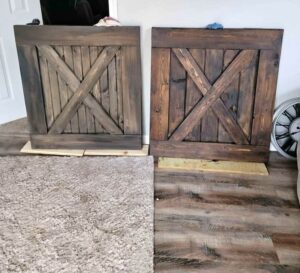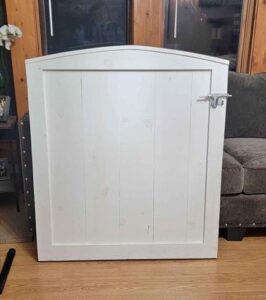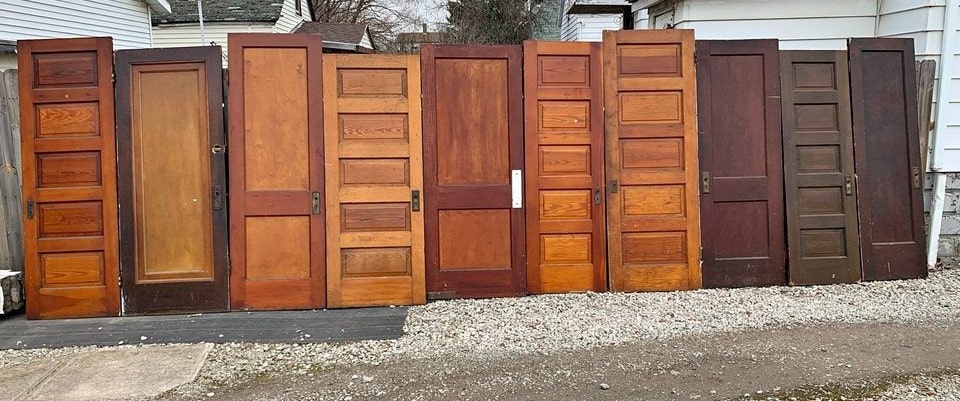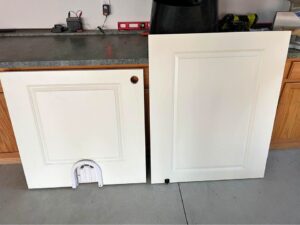In the realm of mobile home upgrades, one unique and functional feature gaining popularity is the installation of Dutch doors. These charming doors, known for their split design that allows the top and bottom halves to open independently, bring a touch of traditional elegance to modern mobile homes. From farmhouse-inspired aesthetics to contemporary designs, mobile home owners are discovering the myriad of possibilities that Dutch doors bring to the table. In this article, we’ll delve into the world of mobile home Dutch doors, exploring their benefits, installation process, and how they can transform the overall look and feel of your mobile dwelling. Discover the perfect synergy of style and functionality with mobile home Dutch doors.

What are the Cons of Dutch Doors
While Dutch doors offer a range of benefits, it’s essential to consider their potential drawbacks before deciding if they are the right fit for your needs. One notable concern is security, as the split design may compromise the door’s overall strength, making it more susceptible to forced entry. Additionally, the seam between the upper and lower halves can be a point of vulnerability for drafts, potentially impacting energy efficiency and climate control within the living space. Another consideration is maintenance, as the split configuration can accumulate dirt and debris more easily than a standard door, requiring regular cleaning to ensure smooth operation.
Furthermore, Dutch doors may pose challenges for individuals with mobility issues or disabilities due to the need to navigate the threshold created by the split halves. Noise transmission can also be a concern, as the design may allow more sound to pass through compared to a solid door, affecting the level of privacy within the home. While these cons should be weighed against the advantages, it’s important to recognize that the decision to install Dutch doors ultimately depends on personal preferences, lifestyle, and specific requirements.

How Expensive is a Dutch Door?
The cost of a Dutch door can vary based on factors such as material, design, and any additional features. Generally, Dutch doors are available in a range of prices to accommodate different budgets. On the lower end, you may find basic models made from more affordable materials like fiberglass or steel, which can cost anywhere from $200 to $500. These doors are often simpler in design and may have fewer customization options.
Mid-range Dutch doors, crafted from materials like wood or composite materials, can fall in the range of $500 to $1,500. These doors may offer more design choices, better durability, and enhanced aesthetic appeal. High-end Dutch doors, often constructed from premium woods or customized to specific preferences, can cost $1,500 or more.
Installation of a Dutch Door
It’s important to factor in installation costs, which can vary depending on the complexity of the installation process and whether any modifications are needed to fit the door into an existing frame. Additionally, geographical location and local labor rates can influence the overall expense. Before making a purchase, it’s advisable to obtain quotes from multiple suppliers and consider the long-term benefits and features to ensure the Dutch door aligns with both your budget and preferences.

What is the Point of a Dutch Door
A Dutch door serves a dual purpose, combining functionality with charm to offer a unique and versatile design. The distinguishing feature of a Dutch door is its divided structure, which allows it to be opened in two separate sections: the top half and the bottom half. This design provides several benefits:
Ventilation and Natural Light: Dutch doors allow for increased airflow and ventilation while keeping pets or small children contained. By opening only the top half, you can enjoy fresh air and natural light without fully exposing the interior space.
Interaction and Communication: The split design also facilitates interaction and communication. For instance, in a residential setting, you can greet neighbors or receive packages without fully opening the door. In commercial spaces, it can be used as a convenient service window.
Pet Control: Dutch doors are practical for pet owners. They provide a barrier to prevent pets from running outside while still allowing them to see and hear what’s happening outdoors.
Aesthetic Appeal: Dutch doors bring a touch of classic charm to homes. They add character and visual interest to both the interior and exterior, contributing to a unique and stylish architectural element.
Versatility: Dutch doors are available in various materials and styles, making them suitable for different settings. Whether in traditional or contemporary designs, Dutch doors offer versatility to complement diverse architectural styles.
While Dutch doors may have some drawbacks, such as security concerns or potential drafts, their multifunctional nature and aesthetic appeal make them a popular choice for those seeking a distinctive and practical door solution.

What is a Standard Mobile Home Door Size?
The standard size for mobile home doors typically falls within the range of 32 inches to 36 inches in width and 74 inches to 76 inches in height. However, it’s essential to note that mobile homes can vary in design and construction, and as a result, door sizes may differ slightly between manufacturers or models.
To ensure accuracy when replacing or installing a mobile home door, it’s recommended to measure the existing door frame carefully. Standard exterior doors for mobile homes are often manufactured to fit these common dimensions, but verifying the specific measurements of the opening will help ensure a proper fit and installation.
Conclusion on Mobile Home Dutch Doors
In conclusion, mobile home Dutch doors stand out as a distinctive and practical choice for those seeking to enhance their living spaces. From their classic charm to the versatility they offer, Dutch doors bring a unique blend of functionality and aesthetic appeal. Despite potential drawbacks such as security concerns and maintenance considerations, the advantages, including improved ventilation, interaction possibilities, and the added touch of style, make them a compelling option. As homeowners continue to prioritize personalization and innovative design in their mobile homes, Dutch doors emerge as a symbol of both tradition and modernity, transforming the entryways of these dwellings into focal points that reflect individual tastes and preferences. Whether enjoying the breeze on a sunny day or adding a touch of character to the facade, mobile home Dutch doors present a timeless and practical solution for those seeking to make a statement with their entry points.
You might also be interested in our articles:
Land and Home Package Deals: Exploring Benefits, Financing and Equity Growth

